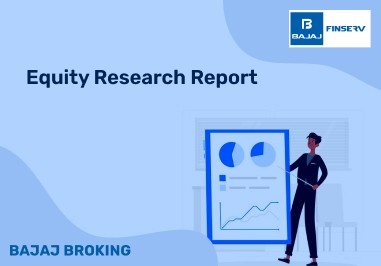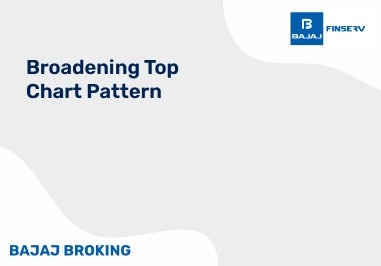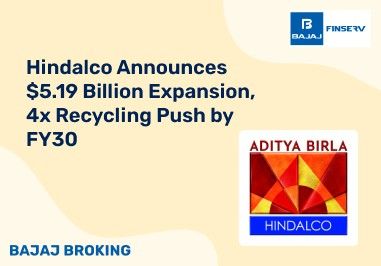What is a Bulk Deal in Share Market?
Here is everything you need to know what the whole concept of a bulk deal is.
When it comes to the stock market, a Bulk Deal can be defined as a transaction done by a single entity.
This entity could be an institutional investor or a even well-known trader
Under a bulk deal, this investor or trader buys or sells a large amount of a particular company's shares.
This buying or selling is done as a part of a single trade.
These factors and the definition of a bulk deal are flexible and depend on the stock exchange and the regulatory authority monitoring it.
The basic definition, however, remains the same, i.e. a transaction as a part of which the number of shares being traded of a particular company exceeds a chunk of its outstanding shares.
Such transactions are usually disclosed to the stock exchange where the shares are being traded
These shares are then made available to the public after the trading day.
Additional Read: What is Trading Account: Definition, Types & Benefits
What is a Block Deal in Share Market?
Here is everything you need to know what the whole concept of a block deal is:
A block deal is any single transaction that involves the trading of shares more than 5,00,000 in number or exceeding the value of ₹10 crores.
It was in 2017 that SEBI or the Securities and Exchange Board of India modified the trading value in a block deal to the current ₹10 crores
Block Deals can only take place within a designated trading window.
This is known as the "block deal window."
Because there are many shares involved and the share value is also high, retail investors do not have access to block deals
For the same reason, block deals are also not displayed on any charts of any trading platform.
The block deal window is only open for a total of 35 minutes after trading opens.
Block trades that are made under this window also need to be reported to the stock exchange immediately by the broker
Block trades also cannot be squared off intraday.
Bulk Deals vs Block Deals- Key Difference
Below is the list of differences between a block deal and a bulk deal.
Aspects
| Bulk Deals
| Block Deals
|
Definition
| Bulk Deals involve trading a large quantity of shares of a particular company's stock. Bulk deals usually cross a predefined threshold when it comes to the number of shares sold. A bulk trade is done in a single transaction
| Block deals involve trades that exceed the buying or selling of a large number of shares. This usually exceeds either 5 lakh shares in number or shares with a value of more than ₹5 crore in a single transaction.
|
Transaction Size
| Smaller
| Larger than Bulk Deals.
|
Market Impact
| Usually have a limited impact on the stock’s price. This is because bulk deals don’t involve a majority of a company’s share percentage.
| Larger impact on the stock's price. This is because there is more involvement of a larger portion of the company's shares. As a result of this, there could be price fluctuations.
|
Reporting Requirements
| Needs to be reported to the stock exchange within a specific time frame.
| Block Deals must be reported to the stock exchange within a shorter time frame than Bulk Deals, usually immediately after the trade has been carried out or is being carried out.
|
Disclosure
| Names of buyers and sellers are disclosed to the public. This disclosure is done after the trade has been completed and the transaction is done.
| Names of buyers and sellers are disclosed to the public. This disclosure is done after the trade has been completed and the transaction is done.
|
Purpose
| Mostly used by retail and institutional investors. It helps with their portfolio management as well.
| Usually used by institutional investors, like mutual funds. This helps them gain or dispose of a larger stake in a company.
|
Regulation
| Stock exchanges and market regulators are responsible for regulating bulk trades.
| Though regulated by stock exchanges and market regulators, block trades are bound by stricter rules including their reporting requirements.
|
Market Reaction
| Less likely to attract immediate attention from the market and traders.
| More likely to attract attention from market participants, leading to increased trading activity and volatility.
|
Bulk And Block Deals Impact On Market And Investors
Both bulk and block deals affect the stock market and investors differently. Here are some of the impacts both these deals have on the market and the investors:
Bulk Deals:
Both bulk deals and block deals can influence stock prices, investment strategies, market sentiment etc.
Bulk deals can potentially increase price volatility in the market.
Upon the execution of a bulk deal, after the details of the deal are disclosed publicly, speculative trading activity may be triggered
This is because investors want to make the most of the insider information.
This speculative trading can result in volatility in stock prices which can be a good opportunity for traders but risky for long-term investors.
Block Deals:
The possibility of block deals causing immediate price volatility is less
This is essentially because block deals are privately negotiated and executed.
Post reporting the details of the block deal to the stock exchange, however, it is a different ball game
Since these deals post their execution become public knowledge, it can end up influencing the market sentiment and investor confidence in the company or sector involved.
Common Impacts:
Both deals provide valuable insights into how institutional investors and other market participants trade.
For example, if many institutions decide to get involved in such transactions, it points to their confidence in a particular stock or the sector associated with it.
Keeping this in mind, other investors or traders can be influenced and change their trading positions.
Both bulk and block deals also impact a stock's liquidity and trading volume.
How Does Block or Bulk Deal in A Stock Affect It?
Here is how a block or bulk deal in a stock can affect it:
Both block and bulk deals involve the trading of a security.
When several trades are made on a particular stock, over a certain amount of time, it indicates that the stock has the potential for growth
This is one of the ways large investors attract more buyers to a particular stock.
Larger transactions in the stock market will always have consequences for both small and sometimes larger investors
Because of their sheer size and volume, such stocks come off as trustworthy.
No doubt that block and bulk deals help offer insights into the kind of interest a particular stock is getting
However, solely depending on the insights through block and bulk deals might not be enough
Market participants should look at other indicators and trends before making any trading decisions.
Even if a bulk or block trade has been carried out on a particular stock does not mean that the stock will keep moving in the same direction as the trade.
However, if the pattern of the bulk and block trades are repeated on a particular stock, it can safely be assumed that the stock is garnering more interest and moving in the trade direction.
Additional Read: Difference Between Demat and Trading Account
Advantages of Bulk Deals and Block Deals
The benefits of bulk deals are as follows:
More transparency:
In bulk deals, the buyer and the seller’s identities are disclosed to the public as soon as the trade concludes ensuring there is transparency. This transparency also helps provide market insight into the stocks being traded.
Cost-effective:
In bulk deals, the transaction cost is much lower when compared to trading shares in smaller quantities. This makes them much more economically viable options
Flexibility
Because there is no trading window where bulk trades are concerned, buyers and sellers can carry out the trade at any point during the regular trading hours. This makes bulk trading a very flexible trade option
The benefits of block deals are as follows:
More Efficient:
Since block trades help facilitate large transactions without issues like price fluctuations to slow things down, it can be considered a fairly efficient way of trading.
Confidence Indicator:
When a block deal is carried out, it points towards the investor’s confidence in the future of the company.
Market Intelligence:
When analyzed well, block deals can serve as a brilliant way to gain insights into how institutional investors think.
Disadvantages of Bulk Deals and Block Deals
Here are the disadvantages of a block deal:
Limited Trading Window:
Since block deals can only take place under a 35-minute window after the trading day opens, it is less flexible and reduces opportunities for both the buyer and seller.
Price Impact:
When a block deal is disclosed to the public after it has been carried out, the market could react to the disclosure and end up causing price fluctuations.
Here are the disadvantages of a bulk deal:
Less Confidential:
In a bulk deal, the market can see the intention and strategy of the buyer and seller. As a result, there is very little left to be disclosed.
Market sentiment:
Bulk trades can easily be perceived as being either a positive or a negative signal for the stock or sector being traded, by the market.
Conclusion
Traders must understand the difference between bulk and block trades to help investors make educated trading decisions in line with their investment goals and risk tolerance aptitude. There is no doubt that both types of trade involve large volumes, but bulk trades carried out in the National Stock Exchange or NSE end up immediately impacting real-time pricing in the market. A block deal, on the other hand, is more discrete and is executed off-market.
Disclaimer: Investments in the securities market are subject to market risk, read all related documents carefully before investing.
This content is for educational purposes only. Securities quoted are exemplary and not recommendatory.
For All Disclaimers Click Here: https://www.bajajbroking.in/disclaimer













